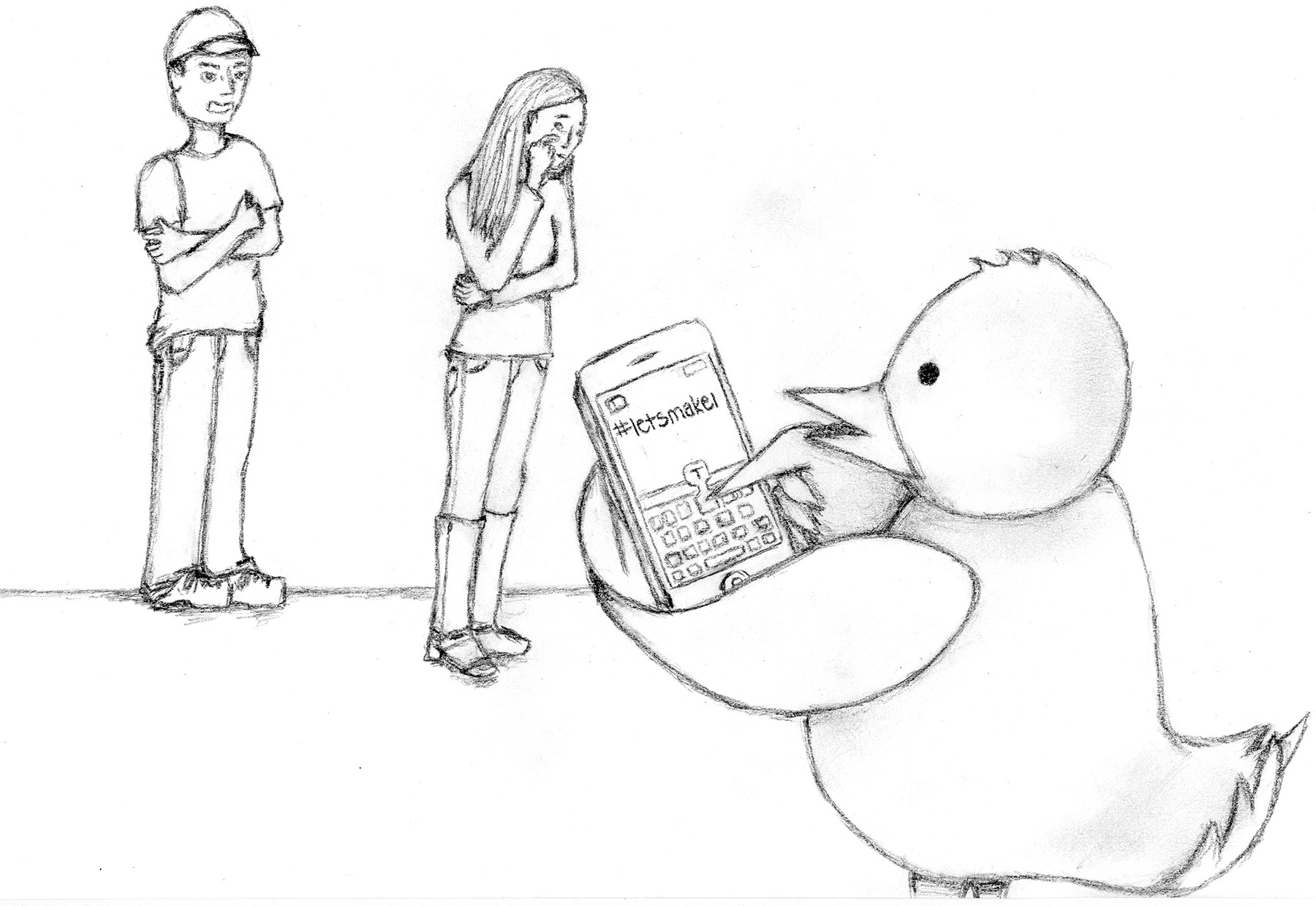
Usually, awkward situations tend to be avoided. On Twitter, that does not appear to be the case.
Every so often, some of the Twitter users in our community post tweets, tagging them with “#LetsMakeItAwkward.” This hashtag is used to try to make a comedy out of an awkward situation between students.
These “#LetsMakeItAwkward” tweets often start as friendly jabs at peers. For example, one person tags two Twitter users in a tweet about them, oftentimes an ex-couple, and follows it with the hashtag in an attempt to gain the attention of other Twitter users. Inevitably, the tweets get worse, calling out and occasionally humiliating the people at which the tweet is directed. Twitter turns into local warfare, with shots being fired repeatedly and publicly at other students.
In an article on Page 1 about social media anxiety, Ellie Harmon, Ph.D. candidate at the University of California in Irvine, discovered that many social media users feel that if followers do not favorite their posts, they are less popular than other users. So, when an online community posts “#LetsMakeItAwkward” tweets, some kids may feel it is an opportunity to gain support via Twitter, and thus boost their own self-confidence.
Here lies the problem. Kids see their peers posting these “#LetsMakeItAwkward” tweets and notice the substantial amount of “favorites” or “retweets” that often come with them. Therefore, many kids seeking self-esteem through social media camaraderie feel compelled to follow the trend and using with the hashtag.
The once playful hashtag transformed into something that was anything but playful. Many students publicize the personal lives of other students, making fun of private situations that had nothing to do with those that post the information. “#LetsMakeItAwkward” was no longer a playful social media activity, but rather a form of online bullying.
When students become humiliated and insulted by the tweets of their peers, it can be concluded that these are acts of cyberbullying
According to the National Crime Prevention Council, cyberbullying can display harsher effects when “kids say things online that they wouldn’t say in person, mainly because they can’t see the other person’s reaction.”
These situations may have gained an increased presence on social media platforms because students often feel a desire to be perceived as “popular” among the online community. Feeling a need to increase their own social prominence, students resort to cyberbullying their peers as a selfish way to gain the approval of others.
In most instances there is no harm in attempting to get “favorites” or “retweets” from posts made on Twitter. The harm lies in the way in which students choose to do so. Whether it was intended by students or not, cyberbullying has become the accepted norm on Twitter.
Bullying, however, can be prevented. Students should be more aware of the effect tweets have on others rather than solely posting information to boost their own self worth within the online community. Such hurtful “Twitter Wars” prove that people need to consider the feelings of others before posting things on social media sites for the online community to see.
Perhaps we can avoid these awkward tweets by realizing the motive behind them and simply avoiding the urge to follow harmful trends.

